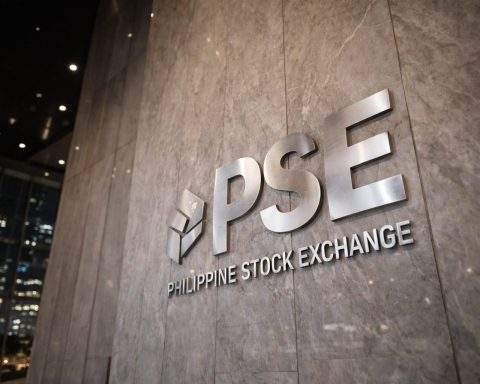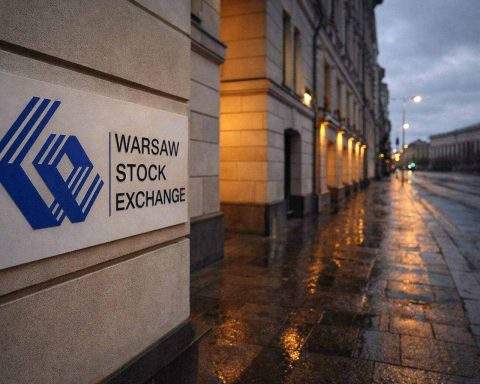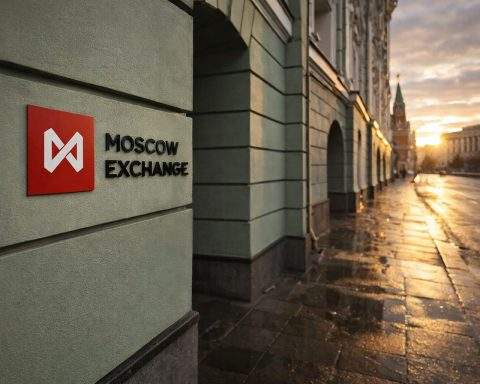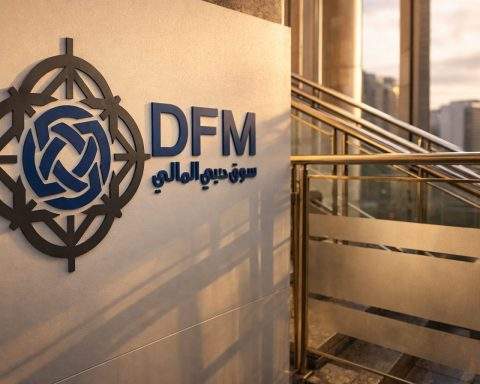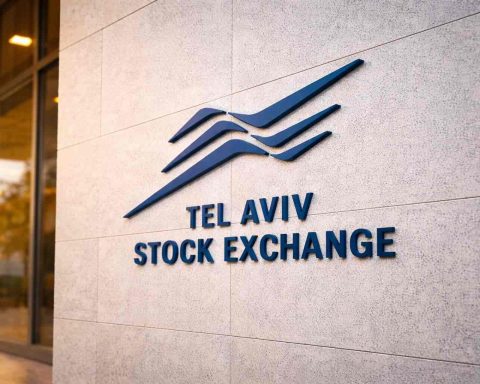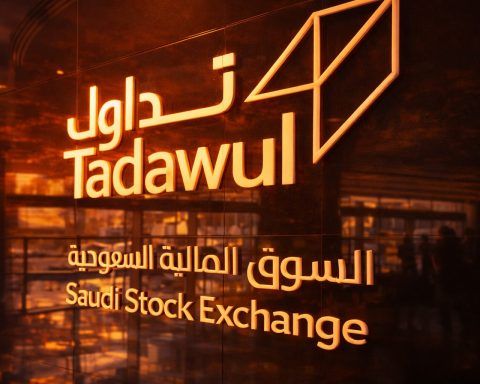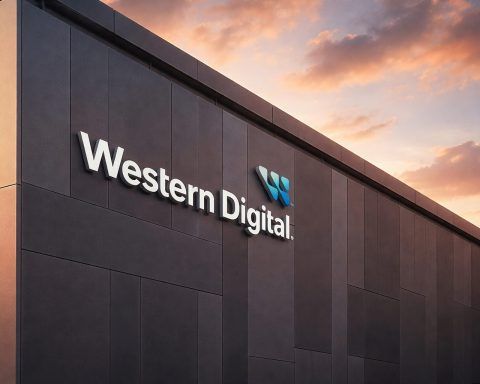- In a massive secondary sale, OpenAI may offload about $6 billion of stock to SoftBank and Thrive Capital, valuing the company at about $500 billion, with roughly 700 million weekly ChatGPT users and a $12 billion revenue run-rate in the first seven months of 2025.
- Oil prices slid as Brent crude traded around mid-$65 per barrel and WTI around $62.8, after trading above $80 earlier, with Goldman Sachs warning of a potential deep bear market if peace talks progress.
- The Magnificent 7 techs grew earnings per share by 26% year over year in Q2, helping Nasdaq futures hover near all-time highs ahead of Nvidia’s upcoming report.
- Markets priced about an 85% chance of a 25 basis-point Fed rate cut in September, though some analysts caution there is little data-based support ahead of Powell’s Jackson Hole speech.
- S&P 500 profits rose about 11% last quarter, and 58% of companies raised full-year guidance, according to Goldman Sachs.
- Google was fined A$55 million in Australia for pre-install deals to have Google Search on Android with Telstra and Optus.
- Air Canada canceled about 700 flights as 10,000 flight attendants went on strike, with a government back-to-work order and potential jail time for union leaders.
- Advent International announced a $1.3 billion buyout of Swiss semiconductor firm U-Blox at CHF 135 per share, a 53% premium to the stock’s recent price.
- Klook is confidentially hiring banks for a potential U.S. IPO around $500 million, backed by SoftBank and Goldman Sachs.
- Tesla cut monthly UK lease prices by up to 40% to spur faltering sales, as July UK new-car registrations fell 60% to under 1,000, with battery EVs projected to account for 23.8% of 2025 UK new-car sales.
Global Markets & Economy
Global markets were on edge amid shifting geopolitics and central bank jitters. A high-stakes summit between U.S. President Donald Trump and Russia’s Vladimir Putin ended without a Ukraine ceasefire, and Trump signaled a push for a “rapid peace deal” that Kyiv should accept reuters.com. European leaders scrambled to back Ukraine as fears grew that Washington might soften its support in favor of Arctic oil deals with Moscow reuters.com reuters.com. “The mood seems to favour Russia following Friday’s summit,” observed Aegon asset manager Jeff Grills, noting a rally in Ukraine’s bonds had stalled at ~$0.55 on the dollar reuters.com. Investors now expect Europe to boost defense spending, and Bank of America warned a U.S.-Russia energy détente could unleash a “deep” bear market in oil and gas reuters.com.
Equity markets were torn between geopolitical uncertainty and hopes of easier monetary policy. Asian stocks hit fresh highs on Monday – Japan’s Nikkei jumped 0.9% to a record, and Chinese blue chips reached 10-month peaks reuters.com reuters.com – helped by a “risk-on” mood and expectations that global interest rates may soon fall. Indeed, traders see an ~85% chance the U.S. Federal Reserve will cut rates by a quarter-point in September reuters.com. Fed Chair Jerome Powell is slated to speak at the Jackson Hole symposium later this week, where he’ll have to balance still-high inflation against a cooling job market reuters.com reuters.com. “There is no data-based support here for a rate cut in September,” cautioned Conrad DeQuadros of Brean Capital after U.S. retail sales rose a solid 0.5% in July reuters.com reuters.com. The robust sales – boosted by auto demand and Amazon and Walmart’s summer promotions – eased recession fears but, alongside a jump in wholesale prices, led traders to scale back bets on any “jumbo” Fed rate cut reuters.com reuters.com. “The U.S. economy looks to be in okay shape in the third quarter,” said Comerica’s chief economist Bill Adams, adding that the Fed is likely to cut rates by year-end even if the exact timing remains uncertain reuters.com.
Major indexes remained near highs thanks to strong corporate earnings. S&P 500 profits rose about 11% last quarter and 58% of companies raised full-year guidance, Goldman Sachs noted reuters.com. “Earnings results have continued to be exceptional for the mega-cap tech companies… the ‘Magnificent 7’ grew EPS by 26% year/year in Q2,” Goldman analysts wrote, highlighting blockbuster results from U.S. tech giants reuters.com. Upcoming reports from retailers – including Home Depot, Target, Lowe’s and Walmart – will shed light on consumer spending power reuters.com. In bond markets, recession worries and massive government borrowing kept yield curves steep, with German 30-year yields at 14-year highs amid talk of heavier European defense outlays reuters.com reuters.com. The U.S. dollar steadied after slipping 0.4% last week; it last traded around ¥147.5 and $1.17 per euro reuters.com. Notably, the Federal Reserve announced it will end its special “novel activities” supervision program for crypto and fintech, folding that oversight into normal bank exams as it feels more confident managing those risks reuters.com. The policy shift could ease a compliance burden on banks venturing into digital assets, marking a subtle regulatory win for the finance industry reuters.com.
Technology & AI
Artificial intelligence continues to mint eye-popping valuations. In a massive secondary share sale, current and former employees of OpenAI are in talks to offload $6 billion of their stock to investors including SoftBank and Thrive Capital reuters.com. The deal, if finalized, would value the ChatGPT creator at a staggering $500 billion – up from about $300 billion earlier this year reuters.com. The frenzy reflects OpenAI’s explosive growth: the Microsoft-backed startup has roughly 700 million weekly users for ChatGPT, and its revenue has doubled in the first seven months of 2025 to an annual run-rate of $12 billion reuters.com. OpenAI is on track for $20 billion in sales by year-end, underscoring how the global AI race is “intense…for talent” and profits reuters.com reuters.com. SoftBank, which is also leading OpenAI’s upcoming $40 billion primary funding round, appears eager to deepen its bet on AI’s future reuters.com.
Meanwhile, Big Tech faces ongoing regulatory headaches. Google agreed to pay an A$55 million (US$36 million) fine in Australia after the competition regulator found the company struck secret deals with telecom giants Telstra and Optus to pre-install Google Search on Android phones, disadvantaging rival search engines reuters.com. The penalty adds to Google’s rough patch down under – just last week, an Australian court largely ruled against Google in Epic Games’ antitrust lawsuit over app store dominance reuters.com. Australian authorities are also tightening social media rules: YouTube was recently added to a ban on platforms allowing under-16 users, reversing an earlier exemption reuters.com. These moves highlight the “bumpy period” Alphabet’s Google is enduring in jurisdictions pushing back on Big Tech’s market power reuters.com.
In tech media, M&A and IPO chatter is heating up (see Deals & IPOs below). And the broader tech sector’s earnings boom is buoying investor sentiment: Nasdaq futures are near all-time highs thanks to upbeat results, especially from cloud and AI-focused firms reuters.com. With chipmaker Nvidia – a key AI beneficiary – set to report soon, analysts are optimistic the tech rally has room to run reuters.com. As Goldman Sachs noted, “Nvidia has yet to report, [but] the Magnificent 7 [tech titans] apparently beat earnings expectations by 12% in Q2,” signaling broad strength in the sector reuters.com.
Energy & Commodities
Oil prices slid over the weekend as fears of a supply shock from Russia receded. Trump’s meeting with Putin ended with Washington backing away from new curbs on Russian oil exports, despite no Ukraine peace deal yet reuters.com reuters.com. Brent crude initially dropped over 1%, falling to the mid-$65 per barrel range – a level that Bank of America’s Michael Hartnett said already “priced for a Ukraine peace deal” reuters.com. By Monday, crude steadied: Brent hovered around $65.8 and WTI ~$62.8, little changed reuters.com. Traders were relieved that Trump “exerted no further pressure…to disrupt [Russia’s] oil exports” for now reuters.com. The U.S. President explicitly said he “did not immediately need” to consider tariffs on top Russian oil buyers like China – at least not for a few weeks – cooling concerns of imminent sanctions reuters.com reuters.com. Trump had, however, slapped a fresh 25% tariff on Indian goods last week over India’s Russian oil imports reuters.com, underscoring the geopolitical stakes for energy markets.
With the prospect of Russian supply remaining ample, analysts see more downside for oil. “A non-outcome was largely priced in… the market remains in wait-and-see, more in a bearish context,” said independent energy analyst Gaurav Sharma, noting the possibility of more Russian barrels hitting global markets if the war ends reuters.com. Indeed, Brent is now down to the mid-$60s from over $80 in early summer, and goldman expects an extended glut could push oil and gas into a “deep bear market” if peace efforts progress reuters.com. In other commodities, gold held around $3,343 an ounce after a 1.9% weekly drop reuters.com, reflecting reduced safe-haven demand as investors eye possible peace talks. And in energy policy, South Korea reported a surge in nuclear power generation (up sharply as coal usage plunged) reuters.com – a notable shift in Asia’s energy mix as countries juggle climate goals and energy security.
Retail & Consumer
The consumer picture showed resilience with a few caution flags. In the United States, retail sales rose 0.5% in July, beating expectations, as shoppers snapped up cars and flocked to summer discount events reuters.com reuters.com. Major retailers like Amazon and Walmart offered aggressive promotions (Amazon’s Prime Day sale ran 96 hours this year) to entice inflation-weary consumers, boosting online sales by 0.8% for the month reuters.com. The spending surge, alongside an upward revision for June sales, suggests the U.S. economy entered Q3 with momentum and “eased some concerns that economic activity was stalling” reuters.com. However, certain discretionary categories showed cracks – Americans pulled back on home improvement and dining out, with restaurant sales down 0.4% in July reuters.com. A softening labor market also looms over consumer confidence, and the latest University of Michigan survey found inflation expectations creeping up reuters.com. Those trends have some economists doubting the Fed will rush into rate cuts despite political pressure for easier money reuters.com.
Globally, retail-focused companies are eyeing mixed fortunes. New Zealand-based a2 Milk reported a strong full-year profit jump and even announced a factory acquisition to expand infant formula sales into China (betting on rising demand there) reuters.com reuters.com. In the U.S., all eyes are on big-box earnings this week: results from Home Depot, Target, Lowe’s, and Walmart will gauge whether higher rates and student loan payments are denting Americans’ appetite to spend reuters.com. Thus far, the retail sector has proven surprisingly robust – U.S. retail sales were 3.9% higher than a year ago reuters.com – but any cracks in guidance from these bellwethers could signal a slowdown heading into the holiday season. In Europe, consumer sentiment is more subdued, but luxury and automotive sales in markets like China have given a boost to export-oriented retailers and carmakers (e.g. German auto exports are benefiting from a weaker euro around $1.17 reuters.com). Overall, the global consumer is still spending, albeit selectively, keeping recession fears at bay for now.
Transportation & Industry
It was a tumultuous weekend for the transportation sector, with labor strife and policy shocks making headlines. Air Canada was forced to halt all flights as 10,000 flight attendants defied a government labor order and continued their strike into Sunday reuters.com reuters.com. The workers’ union called the back-to-work order unconstitutional and insisted on negotiating a “fair deal” rather than submit to binding arbitration reuters.com. With most of Air Canada’s 700 flights canceled and over 100,000 travelers scrambling for alternatives, terminals descended into chaos reuters.com. “We are kind of left to fend for ourselves…with no options provided by Air Canada,” lamented one stranded passenger in Toronto reuters.com. The standoff is testing Canada’s strike laws – experts noted it’s “exceedingly rare” for a union to openly defy a federal back-to-work mandate reuters.com. The government is considering court action (even jail time for union leaders) if the impasse continues reuters.com reuters.com. Air Canada aims to resume operations by Monday evening, but uncertainty remains reuters.com.
In Australia, Qantas Airways faced a legal reckoning for its pandemic-era outsourcing. A federal court slapped Qantas with a A$90 million (US$59 million) fine for illegally firing 1,800 ground staff in 2020 and replacing them with contractors reuters.com. The judge imposed the near-maximum penalty to ensure it “could not be perceived as…the cost of doing business” reuters.com. Half the fine will go to the workers’ union, on top of a separate A$120 million settlement Qantas agreed to pay the sacked employees reuters.com. The landmark ruling delivers “real deterrence…to large public companies” against flouting labor laws reuters.com and comes as Qantas’s new CEO tries to rebuild trust after a string of PR fiascos. Qantas shares dipped slightly on the news reuters.com, as investors weighed the financial hit and potential reputational damage.
In the auto industry, Tesla made waves in the UK by slashing leasing prices to spur faltering sales. The EV maker has nearly halved the monthly lease cost of some models compared to a year ago, The Times reported reuters.com. Tesla is reportedly offering leasing firms discounts up to 40% to clear inventory – in part because it’s running out of storage space for unsold cars in Britain reuters.com. U.K. sales of Tesla vehicles plunged about 60% in July to fewer than 1,000 units reuters.com, even as overall British new car registrations fell only 5% reuters.com. A glut of electric cars and the phasing out of EV subsidies have pressured Tesla to cut prices globally this year. Industry data show battery EVs will account for 23.8% of UK new car sales in 2025 (a tad higher than earlier forecasts) reuters.com – suggesting demand is growing, but perhaps not fast enough to absorb Tesla’s output without steep discounts. The company declined to comment on the report reuters.com, but analysts note Tesla’s aggressive price strategy could squeeze competitors and boost EV adoption, even as it risks the company’s margins.
Traditional industries also felt the pinch of geopolitics. Australian steelmaker BlueScope Steel saw its annual profit collapse by 90%, which it blamed on the “maze” of tariffs enacted by Donald Trump’s U.S. administration reuters.com. The company said U.S. trade barriers have hurt steel demand and forced a hefty A$439 million writedown on a recent American acquisition reuters.com. BlueScope’s underlying profit still fell by half even excluding the one-time hit reuters.com. “It is a bit of a maze,” CEO Mark Vassella said of ever-shifting U.S. tariff rules that were announced but often not implemented consistently reuters.com. Despite the grim results, BlueScope’s management struck an optimistic tone, forecasting growth in the coming half-year as higher steel prices (partly a result of U.S. tariffs) could actually boost its U.S. operations reuters.com. The tariff turmoil highlights how political decisions are ricocheting through supply chains – benefiting some industries while hammering others. BlueScope’s shares fell 5% on Monday, as investors digest the longer-term implications of trade policy uncertainty reuters.com.
Deals & IPOs
It was an active weekend on the deals front, signaling a revival in capital markets. Hong Kong–based travel platform Klook has confidentially hired banks for a potential U.S. IPO that could raise around $500 million, according to sources reuters.com reuters.com. Backed by SoftBank and Goldman Sachs, Klook is aiming to list as soon as later this year, though timing will depend on market conditions reuters.com. The move comes as U.S. IPO activity has gained momentum after a long drought, buoyed by strong tech earnings and easing trade tensions that have restored investor confidence reuters.com. Recent high-profile listings – from crypto exchange Bullish to design software maker Figma – point to a thaw in the market for new offerings reuters.com. Klook would add to this trend, capitalizing on a post-pandemic travel rebound and its position as a leading tours and experiences booking site in Asia. Bankers from Goldman, Morgan Stanley, and JPMorgan are working on the deal, though details like share float and valuation are still being finalized reuters.com reuters.com.
In mergers and acquisitions, private equity giant Advent International announced a $1.3 billion buyout of Swiss tech firm U-Blox reuters.com. Advent’s ZI Zenith unit will launch a public tender for U-Blox at CHF 135 per share – a hefty 53% premium to the stock’s recent average price reuters.com. U-Blox makes semiconductor chips and software for GPS navigation in cars, robots and farm equipment, and has been refocusing on its core positioning technology after selling off a wireless module division reuters.com. The deal, expected to close within six months pending approvals, highlights renewed appetite for acquisitions in the beaten-down semiconductor sector. U-Blox had struggled with losses in recent years, but cut its operating loss substantially in the first half of 2025 reuters.com. Advent’s offer suggests optimism that with investment and the removal of tariff uncertainties (many of U-Blox’s clients are in auto manufacturing), the company can return to growth. The transaction also reflects a broader PE trend of snapping up tech assets at discounted valuations after last year’s market volatility.
Elsewhere, dealmakers are cautiously watching the geopolitical backdrop. The Trump administration’s trade maneuvers – from tariffs on India to hints of a U.S.-China deal – could influence cross-border M&A and capital flows. But for now, the deal pipeline is building. Bankers say IPO roadshows are back and buyout financing is available at a price, suggesting the window is open for companies that held off during 2022–2024’s volatility. If the current market calm holds, more headline-grabbing deals and public listings are likely in the coming weeks, providing a hopeful sign that global business confidence is returning despite the numerous risks still on the horizon reuters.com reuters.com.
Sources: Reuters, August 15–18, 2025 news wires and company statements reuters.com reuters.com reuters.com reuters.com reuters.com reuters.com.

